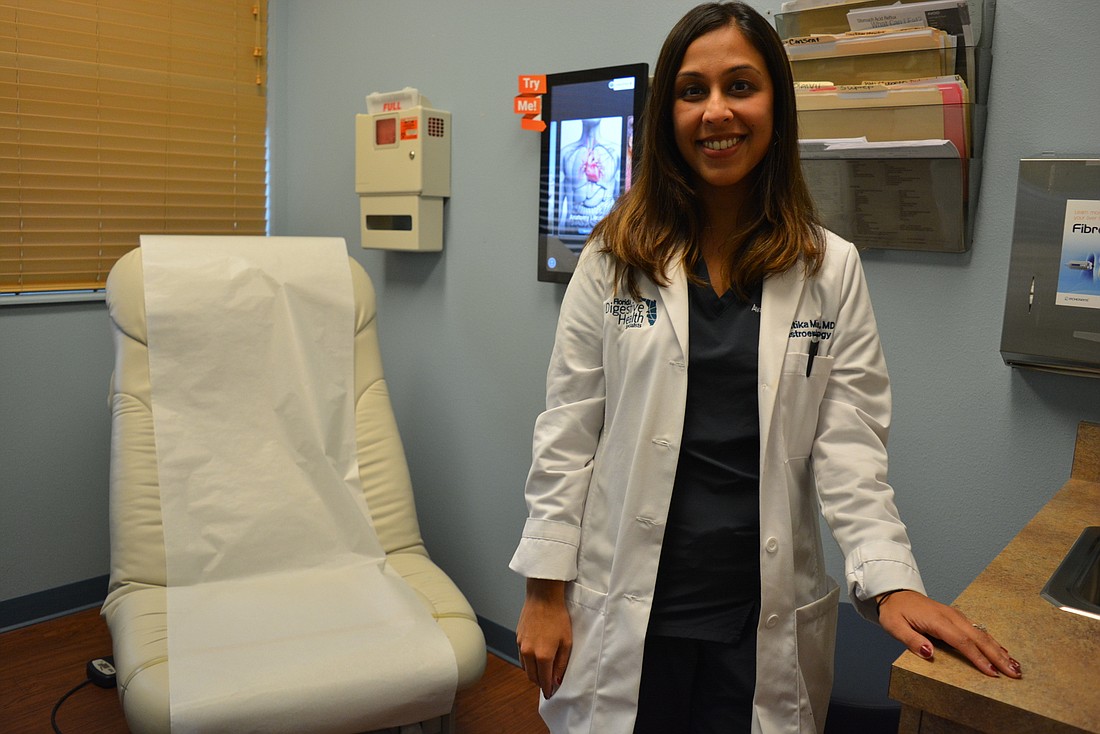- January 3, 2025
-
-
Loading

Loading

In the past six weeks, Dr. Avantika Mishra has seen three patients who have been on a gluten-free diet for more than 15 years and might not even have needed such a restriction.
As a gastroenterologist at Florida Digestive Health Specialists, Mishra said it’s a trend that she and others in her profession are seeing. There’s a misconception that gluten is bad and that avoiding it can be the cure for a variety of conditions, such as bloating or weight loss.
“We mostly see people who think they have triggers, and the symptoms are vague — bloating, changes in bowel movements,” Mishra said. “Apart from celiac disease, it’s all subjective. Many people can reintroduce gluten and feel fine.”
Celiac disease is an autoimmune condition in which consuming gluten actually damages the small intestine. Mishra said avoidance of gluten is the medical treatment for celiac disease, so it is important individuals with celiac avoid it.
However, Mishra and fellow gastroenterologist Dr. Marc Berstein said individuals without gluten sensitivities should strive to eat a plant-based, fiber-rich diet full of fresh fruits and vegetables and whole grains for improved gut health.
Such foods are important for proper nutrition, as well as providing your body the fuel it needs day to day.
“Gluten, over the years, has gotten a bad rap, for better or worse,” Bernstein said. “Almost like a carbohydrate, people avoid it. Patients are having symptoms, and they say, ‘Oh, it must be gluten.’ But gluten can form a healthy part of your diet. Whole grains that do contain gluten should be a staple.”
Berstein and Mishra said individuals who have no gluten allergies or sensitivities should incorporate foods with gluten into their diet because of the health benefits. They said eating gluten-free without having an allergy to gluten can lead an increased risk for micronutrient deficiencies. Plus, many gluten-free products contain additives or other ingredients that are not healthy.
“Gluten, if you think about it, is sort of like a binder,” Berstein said. “It keeps the grain together. Whole grain, before it is refined, can contain very good dietary fiber, B vitamin, phytochemicals with as strong antioxidant effect.”
They said eating gluten-free can also be more expensive and can make it harder to enjoy eating out or other activities because of having to read ingredient labels, pack separate meals and other inconveniences.
Mishra noted that some individuals who do not have celiac disease believe they have a gluten allergy because they experience similar symptoms, such as abdominal pain or bloating. But those symptoms can be the same for a variety of reasons — from eating gas-producing foods like apples or broccoli to having an imbalance of healthy bacteria in the gut to having other medical conditions, such as irritable bowel syndrome or ulcerative colitis.
Mishra and Berstein said that before you eliminate gluten — or any food group — altogether, it’s best to work with a gastroenterologist about the possible causes for your discomfort. In doing so, patients often learn gluten is not the problem.
“Celiac is being more readily identified with better testing and awareness in the medical community,” Mishra said, noting biopsies now can provide a genuine celiac diagnosis.
Mishra and Berstein said having a healthy plant-based diet promotes good gut and overall health. If you are concerned you might have celiac disease, they recommend getting evaluated by a gastroenterologist. An endoscopy is a way to be diagnosed with the disease.